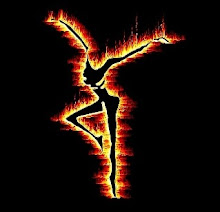"You never know what worse luck your bad luck has saved you from."
— Cormac McCarthy (No Country for Old Men)
— Cormac McCarthy (No Country for Old Men)
First, I want to make note of the limited amount of female characters within the book. In The Road there were basically none (a few glimpses, and arguably one female appears with a voice at the very end) In this story we see the Sheriff's wife (who is spoken about often and very highly by the sheriff), the hitchhiking girl, and Moss's wife. None of the girls appear to be too stereotypical, although none are too rounded either. Just an observation... I cannot speculate on the meaning behind it.
Now, on to the notion of luck with in this novel. I am compelled to draw a parallel between the Sheriff (Bell) and Anton Chigurh. In one of the first scenes, Anton enters a store and flips a coin to decide if he is going to kill the clerk or not. He refers to this coin periodically throughout the novel to make decisions. Bell never learns about this yet he refers to a toss of a coin toward the very end. With the toss of a coin, could Bell have been Anton? Is it luck or chance that creates a person? Bell struggles with these questions throughout.
I love in novels when the read can catch a glimpse of the author. In The Road this most likely happened more. BUT... in this interview with Mr. McCarthy, he touches upon the notion of luck and how he considers him to be the luckiest of us all. (Website: http://online.wsj.com/article/SB10001424052748704576204574529703577274572.html) Humm, it really make you wonder...
One of the most significant scenes is between Bell and his uncle. Bell confesses his deep dark war secret to his uncle and tells him he is going to quit his job. He has come up against something he cannot beat. He has come up against pure evil. He is dismayed that this type of evil exists, but admits that he may have some of that evil in himself (because of his actions during the war). He claims he is lucky to have such a wonderful wife. It is her who he attributes his goodness to. Is he right? Could he have been Anton without her? What do you think?


